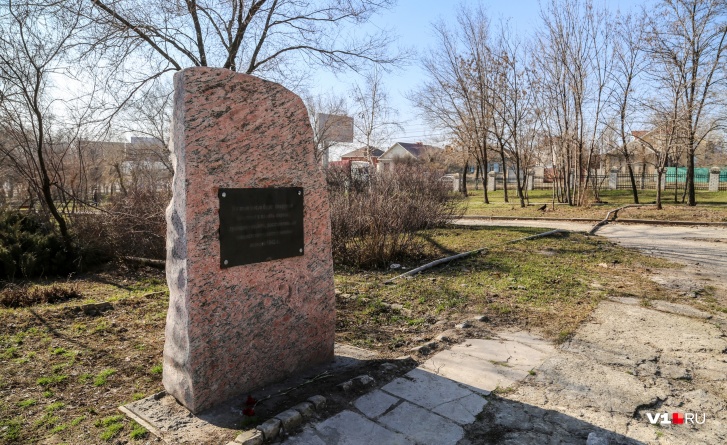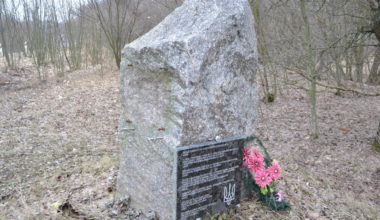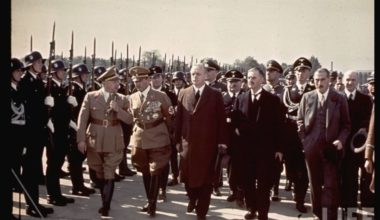The 8th of March Park in central Volgograd may soon see a new memorial sign, with words on it in Russian and Hebrew: “To citizens of the town and the region of Stalingrad killed in the Holocaust. This is the place where Nazis carried out mass executions of Jewish civilians, residents of Stalingrad, from 1942 till 1943.” The issue of memorial installation will be discussed by the Volgograd City Duma before end of May 2020. The ceremony is likely to take place on the 22 of June, the national Day of Remembrance and Sorrow.
By now, there is already a monument to the victims of the Great Patriotic War in the park, a memorial stele made of granite blocks installed there in 1959. In the Soviet times, there was an inscription on its front reading “Here lie the soldiers of the 57th and 64th armies who died like heroes defending the city from the German Fascist invaders.” In the 90s, as the memorial was renovated, the stele received another text, “Here lie soldiers and civilians killed in the days of the battle of Stalingrad. 1942–1943.”
In November of 2007, they laid a symbolic stone at the place with a sign on it, reading “Here, a memorial to Jewish civilians will be erected”. On January 27, 2020, i.e. on the International Holocaust Remembrance Day, governor of the Volgograd Region Andrey Bocharov and city mayor Vitaly Likhachev visited the park and laid flowers to the future Holocaust monument’s stone. That step was a big push forward in the commemoration process.
The site was chosen on the assumption that, due to archival documents, there is a mass grave of those killed by the Nazi occupiers. According to the Stalingrad Panorama museum, the building across the street used to serve as the German commandant’s office during the war, and the park was the site for executions and burials. There were two mass graves of Nazi victims in the park. When the fighting ended, soldiers and officers killed in action liquidating the surrounded German force near Stalingrad were also buried in one of the graves. After that, the mortal remains from other mass graves in different parts of the town (the Central District and Dzerzhinsky District) were moved there.
The idea to set up a Holocaust memorial sign caused disregard in some opposition activists, claiming that a separate monument to Jewish victims is, in their opinion, a pretext for the incitement of ethnic hatred. In particular, Anatoly Boltykhov at the Volgograd Human Rights Center, a regional public organization, said: “We need another monument there dedicated to Russian nationals, several times bigger in proportion to the number of Russian people buried in the park. This would give a clear picture of the losses of different peoples. I strongly believe we should not differentiate. If any nation wants to stand out, they have the right to. But the Russians, too, have the right to put their monument nearby. The monuments should be in proportion to the number of the people lost.”
Anatoly Boltykhov is a Volgograd opposition activist, well-known in his city. In 2012, he was co-organizer of the nationalist Russian March in Volgograd, being the leader of the so-called Minin and Pozharsky Levy. After that he held multiple speeches at the rallies of the Communist Party of the Russian Federation, as a representative of Russians, the nationalist organization. Presently, an active participant in the demos organized by Alexei Navalny’s supporters. was detained and arrested several times, particularly under Article 20.3 of the Russian Administrative Code (“The propaganda or public demonstration of Nazi attributes and symbols”), had a criminal record under Article 282 Part I of the Criminal Code, conviction removed in 2010.


